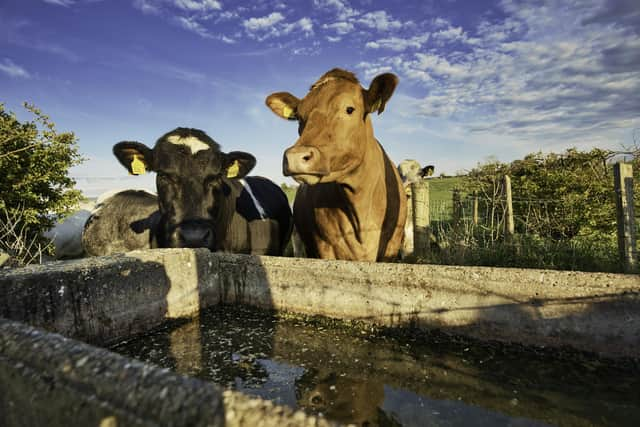Seasonal water efficiency advice for farmers
and live on Freeview channel 276
Farmers should also inspect their water meters for any unusually high readings or flows.
It is important farmers look out for leaks that may have developed over the cold winter months, identifying and repairing them now will save money and avoid an unwelcome surprise when water bills are issued.
Advertisement
Advertisement
Gary Curran, NI Water’s Head of Developer Services, Metering and Billing says: “Over 60% of NI Water’s non-domestic customers are farms, with water the single most important requirement for livestock.


"On a dairy farm, livestock drinking water may account for between 50% and 75% of the farm’s water usage so it makes sense to look after it.
“We all must do our part to conserve water in the face of growing environmental concerns and global climate challenges.
"We are also mindful of how challenging the economy is right now, so the last thing farmers want is a larger than necessary water bill.
Advertisement
Advertisement
“We hope the farming community will find the following advice and tips helpful to look after their water supply.”
- Ensure that you have good understanding of the layout of pipework within your land and keep a map of the line of this pipework;
- Have a supply of the relevant fittings to repair any leakages;
Know where your meters are located (NI Water will help you to do this if needed) and check them on a regular basis. A higher reading may indicate a leak which should be located and repaired as quickly as possible to reduce your water bills.
Advertisement
Advertisement
- Inspect any remote troughs which are not in use, particularly the exposed pipe leading into the trough; if livestock are still inside, consider turning the supply to the trough off at the meter or installing a stop valve for the trough (or field) so you turn off the supply without having to do so at the meter.
- Where practical ensure all underground pipes are buried 750 millimetres (2½ feet) below ground level, to help protect them from frost damage.
- Fix dripping taps.
- Know where your stop valves are located; NI Water can provide stop valve tags. You can request these by emailing [email protected]
Another way of saving water around the farm is simply collecting or ‘harvesting’ rainwater.
This could be as simple as having a water butt.
Advertisement
Advertisement
Rainwater can be used as an alternative water supply, for example in washing vehicles, washing windows and watering plants.
Customers can access further information on NI Water’s website at www.niwater.com or email [email protected]. Anyone with questions about their bill or NI Water charges can phone the NI Water Billing Enquiries Team on 03458 770030.
Northern Ireland Water Limited is the main water company in NI. It became a government-owned company on 1 April 2007.